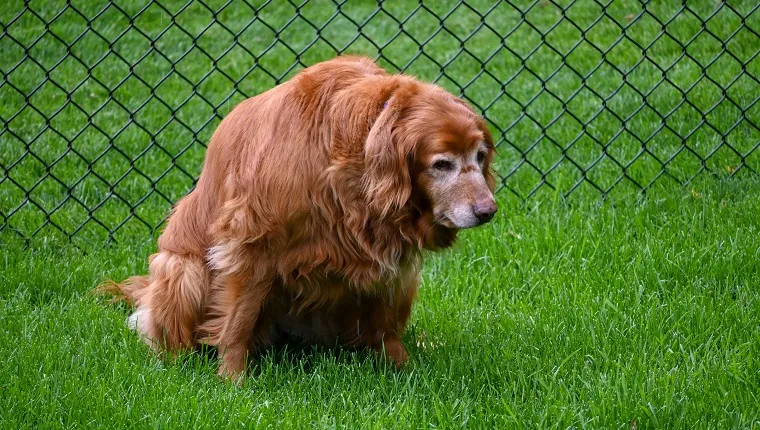Urolithiasis in dogs, sometimes also referred to as urinary tract stones, is a medical condition where calcium deposits form in the urinary tract.
It often affects smaller canines the most, and certain dog breeds including Yorkshire Terriers, Miniature Schnauzers, and Miniature Poodles seem particularly predisposed to developing the condition. Removing the calcium deposits is often the best remedy.
If you see signs that your dog might be suffering from urolithiasis, then you must consult your veterinarian for a proper diagnosis and course of treatment. Here’s what you should know about the symptoms, causes, and treatments of urolithiasis in dogs.
Symptoms Of Urolithiasis In Dogs
Urolithiasis in dogs might not actually result in a dog displaying any symptoms. The sort of symptoms that do tend to accompany the condition include:
- Trouble urinating
- Not being able to urinate
- Urinating too much
- Blood present in the urine
- Inflammation around the belly
Causes Of Urolithiasis In Dogs

The cause of urolithiasis in dogs is higher than normal levels of calcium in the urine. Some of the most common factors that can cause this include:
- Not receiving enough vitamin B6
- Ingesting too much vitamin D
- Eating a dry-food-only diet
- Taking calcium supplements
Also, in terms of specific breeds of dog, those that seem to be most at risk of developing urinary tract stones include:
- Miniature Poodle
- Miniature Schnauzer
- Yorkshire Terrier
- Lhasa Apso
- Shih Tzu
Veterinary Treatments
If you worry that your dog is suffering from urolithiasis, then your veterinarian will want to carry out a full physical examination. Your vet will also take urine samples and perform an X-ray or an ultrasound to determine the extent of the condition.
When it comes to treatment, vets may consider surgery to remove the calcium deposits as an option; although, in many cases, switching a dog’s diet or flushing the calcium deposits out can also prove to be just as effective and less invasive.
Medication can be another option to help dissolve the calcium deposits. As ever, if your vet prescribes your dog medication, then it is vital that you stick to the precise dosage and frequency instructions and complete the full course of medicine.
When recovering at home, it is important that your dog keeps up regular visits to their vet to monitor the success of the treatment and ensure that the condition doesn’t return.
Has your dog ever developed urolithiasis? What kind of treatment did your vet recommend? Tell us all about it in the comments below.









